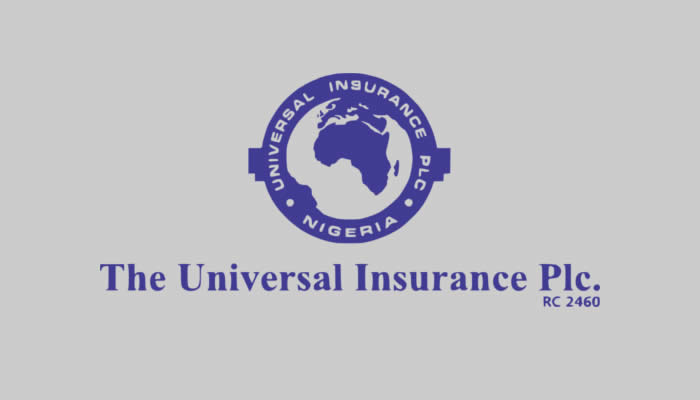Universal Insurance Plc is preparing to launch an upgraded version of its third‑party motor insurance product, a move intended to strengthen consumer protection and enhance value for motorists across Nigeria. Scheduled for introduction later this quarter, the enhanced offering aligns with the company’s broader strategy to innovate its insurance portfolio and support safer, more secure road travel.
The new third‑party motor cover promises expanded liability limits and more comprehensive protection for victims of road traffic accidents. Among the improvements are increased compensation caps for death and bodily injury claims as well as higher provisions for property damage—notably more generous than those commonly offered by existing market products. Universal Insurance has also integrated more streamlined claims procedures, designed to reduce processing time and increase transparency in payout settlements.

Officials at Universal Insurance say the upgraded product was developed in response to widespread public demand and feedback from policyholders, motor clubs, and road safety advocates. The company recognised deficits in past third‑party policies—especially in scenarios involving multiple collision victims—where the statutory minimums failed to sufficiently cover legal costs or medical expenses. The new version is therefore built to offer broader protection without significantly upsizing premiums, thanks to calibrated actuarial modelling and risk pooling across policyholders.
To reinforce accountability and trust, Universal Insurance has partnered with accredited vehicle inspection firms and digital claim tracking platforms. Following an accident, vehicle owners and third‑party beneficiaries can file claims via a mobile app, submit required documentation, and follow up in real time on claim status. The insurer has pledged faster turnarounds, with initial assessments within 48 hours and final settlement timelines capped at 14 working days in non-disputed cases.
As part of the engagement campaign, the company is rolling out nationwide sensitisation efforts aimed at drivers, transport associations, and commercial vehicle operators. These efforts will guide vehicle owners on the benefits of choosing the enhanced cover, explain claim procedures, and outline policy conditions. Training modules are also being delivered to agents, brokers, and frontline staff to help them translate the technical product design into consumer-friendly terms.
Industry analysts view Universal Insurance’s move as a timely development in Nigeria’s insurance space. Third-party motor insurance is legally mandatory but widely perceived as thin, with many policies offering bare-minimal protection that leaves users vulnerable during serious incidents. Universal Insurance’s enhanced product is expected to set a higher benchmark and pressure competitors to raise their own standards.
Beyond consumer value, the product also presents commercial significance. With a pool of approximately three million registered vehicles nationwide, the upgrade could deliver material volume gains in motor insurance. Universal Insurance hopes to convert traditional single-risk motorists onto more robust policies and attract fleet clients—such as logistics firms and ride-hailing operators—seeking broader risk coverages.
To maintain affordability, the company intends to offer the enhanced cover at a slight premium increase over the basic version. They emphasise cost efficiency by leveraging digital distribution, streamlined claims workflow, and risk-based pricing models. Volume discounts, subscribers’ loyalty bonuses, and bundling incentives with other insurance lines—like comprehensive motor or home policies—will cushion the premium incremental effect.
Stakeholders from transport unions and commuter groups have welcomed the introduction. They welcomed the increased compensation limits and more efficient claims handling, noting this could help impoverished families avoid financial ruin after traffic accidents. Legal practitioners supportive of the concept also highlighted that the enhanced policy could reduce litigation around inadequate claim payouts and strengthen enforcement of road liability norms.
Regulators and road safety agencies are also watching closely. The national insurance regulatory body has pressured insurers to improve value delivery in mandatory products and support broader access to affordable insurance cover. Similarly, federal agencies tasked with road transport management are engaged in parallel advocacy around improved road safety financing and accident victim protection.
Universal Insurance officials emphasise that the new motor product complements broader efforts to drive insurance penetration upwards—currently estimated at 0.5 percent in Nigeria—by crafting mandatory products that provide real benefit rather than ticking compliance boxes. The company hopes the initiative will spark trust in the industry and enhance the perception that insurance can deliver substantive value.
Looking ahead, Universal Insurance has indicated plans to broaden the enhanced coverage by linking it to roadside assistance services, legal aid support, and medical emergency response networks in selected urban centres. These addons would be optional but tailored for drivers who wish for extra protection. The firm also intends to expand the digital claims infrastructure with chatbot chat support and integrated policy management tools.
In line with its corporate citizenship ethos, Universal Insurance is aligning the rollout with road safety advocacy groups and non-profit initiatives. A portion of the policy revenue from the enhanced product will support driver education programs, helmet distribution campaigns, and community-based initiatives aimed at improving awareness of traffic laws and collision prevention practices.
In summary, Universal Insurance’s commitment to unveiling an enhanced third‑party motor cover reflects a significant effort to improve mandatory insurance utility, elevate consumer protection, and raise industry standards. If acceptance is strong, the new product may herald a shift in how drivers perceive and rely on the Nigerian insurance sector for risk mitigation.
Support InfoStride News' Credible Journalism: Only credible journalism can guarantee a fair, accountable and transparent society, including democracy and government. It involves a lot of efforts and money. We need your support. Click here to Donate
